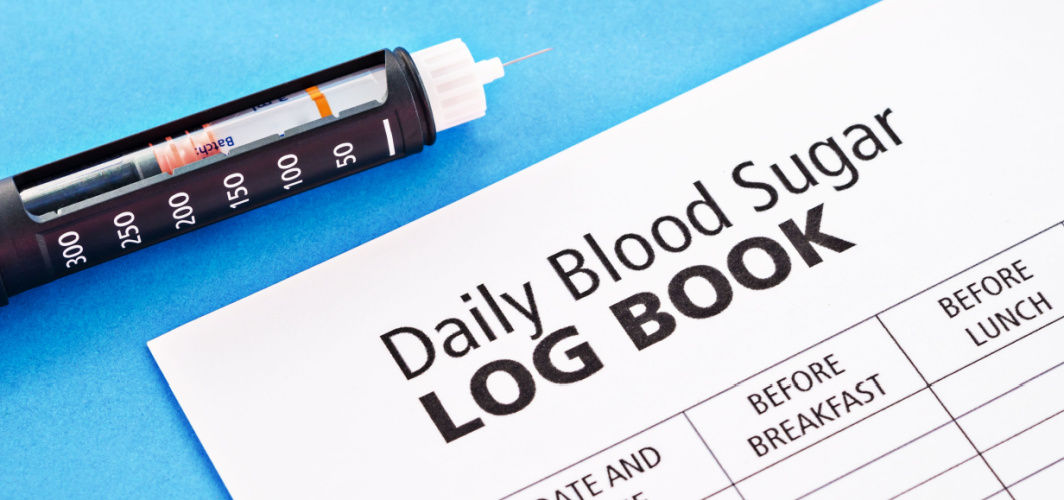Diabetes Management
Why good sleep is necessary to keep lifestyle diseases at bay
5 min read
By Apollo 24/7, Published on - 10 November 2020, Updated on - 30 August 2023
Share this article
6
32 likes

Lifestyle diseases associated with poor sleep
- Obesity
- Increased production of cortisol (stress hormone)
- Increased secretion of insulin which regulates glucose metabolism and promotes fat storage
- Lowered levels of another hormone known as leptin that helps regulate energy balance by inhibiting hunger and reducing the fat storage
- Higher secretion of ghrelin, a hunger-stimulating hormone which increases food cravings.
- Heart diseases
- Hypertension - High blood pressure is one of the leading risk factors for heart disease and stroke. While blood pressure reduces during normal sleep, inadequate sleep keeps the blood pressure high for a longer duration. Over time, insufficient sleep makes the body lose its ability to regulate stress hormones leading to high blood pressure.
- Higher levels of inflammation - Inflammation is a well-known risk factor for heart disease and stroke. A protein called CRP (C-reactive protein) that is released during stress and inflammation is elevated in sleep-deprived individuals.
- A higher heart rate is observed in sleep-deprived individuals, which indicates heightened stress that affects heart health.
- People with sleep disorders such as obstructive sleep apnea wake up several times each night as it affects the ability to breathe during sleep. It happens due to an obstruction in the airways and affects the amount of oxygen circulated when one is asleep. This is related to an increased risk of high blood pressure, heart attack, and stroke.
- Insomnia, a condition in which individuals have trouble falling asleep or staying asleep, is linked to high blood pressure, a major risk factor for heart diseases.
- Diabetes
- When a person goes into a deep sleep, the activity of the nervous system goes down, and the brain needs less glucose. Also, there is an increase in the production of growth hormones and a decrease in the stress hormone. Inadequate sleep impairs glucose regulation in the body and increases stress hormone.
- Lack of sleep may also increase cravings for high-fat and high-sugar foods that lead to diabetes over time.
- Poor sleepers also tend to consume more calories later in the day. This disrupts the circadian rhythm, the internal process which regulates the sleep cycle, leading to weight gain and impaired levels of insulin and blood glucose.
- In people with sleep apnea, lack of oxygen causes stress which induces the release of glucose into the bloodstream. Over time, the individual can develop insulin resistance resulting in type 2 diabetes.
Tips to sleep better
- Try going to sleep at the same time every day and follow the same for waking up. Ensure that this routine is maintained on all the days including weekends.
- Consume light meals instead of heavy ones before bedtime. Avoid consumption of alcohol before going to bed.
- Refrain from using electronic devices with bright artificial light such as mobile phones, TVs, and laptops before bedtime.
- Substances such as caffeine (found in tea, coffee) and nicotine (found in cigarettes) can interfere with your sleep. Hence, it is best to avoid these substances before your sleep time.
- Regular physical activity can help you sleep better. However, strenuous exercise should be avoided at least a couple of hours before bedtime.
Conclusion
Diabetes Management
Leave Comment
Recommended for you

Diabetes Management
7 Reasons Why Blood Sugar Logging is Important in Diabetes?
Blood sugar logging is vital for managing diabetes effectively. It offers insights into glycemic control, aids in treatment adjustments, and prevents hypoglycemia and hyperglycemia. Additionally, it guides lifestyle modifications, helps prevent long-term complications, enables personalised diabetes management, and provides a sense of control and peace of mind. By actively monitoring blood sugar levels, individuals can make informed decisions about their diabetes care, reduce risks, and lead healthier lives with diabetes.

Diabetes Management
Gestational Diabetes: Symptoms, Causes, Diagnosis, Treatment & Prevention
Gestational diabetes is a condition characterised by high blood sugar levels during pregnancy. It usually occurs between the 24th and 28th weeks of pregnancy and can have implications for both the mother and baby. Seeking early healthcare, understanding the symptoms, diagnosis, and treatment, as well as managing potential complications of gestational diabetes are essential for a healthy pregnancy.

Diabetes Management
Innovations That Are Making Living With Diabetes Easier
Advancements in science and technology have revolutionised diabetes care, introducing innovations that simplify the lives of individuals with diabetes. CGM systems provide real-time blood sugar data, enhancing control and reducing hypoglycemic episodes. Insulin pens and pumps offer precision and convenience, while artificial pancreas systems automate insulin delivery based on glucose levels. Telehealth and diabetes apps enable remote monitoring and personalised guidance. Additionally, advanced insulin formulations improve post-meal blood sugar control. These innovations empower individuals to manage their condition more effectively, enhancing their overall quality of life.
Subscribe
Sign up for our free Health Library Daily Newsletter
Get doctor-approved health tips, news, and more.
Visual Stories

8 Fruits That are Incredibly Healthy for Diabetes
Tap to continue exploring
Recommended for you

Diabetes Management
7 Reasons Why Blood Sugar Logging is Important in Diabetes?
Blood sugar logging is vital for managing diabetes effectively. It offers insights into glycemic control, aids in treatment adjustments, and prevents hypoglycemia and hyperglycemia. Additionally, it guides lifestyle modifications, helps prevent long-term complications, enables personalised diabetes management, and provides a sense of control and peace of mind. By actively monitoring blood sugar levels, individuals can make informed decisions about their diabetes care, reduce risks, and lead healthier lives with diabetes.

Diabetes Management
Gestational Diabetes: Symptoms, Causes, Diagnosis, Treatment & Prevention
Gestational diabetes is a condition characterised by high blood sugar levels during pregnancy. It usually occurs between the 24th and 28th weeks of pregnancy and can have implications for both the mother and baby. Seeking early healthcare, understanding the symptoms, diagnosis, and treatment, as well as managing potential complications of gestational diabetes are essential for a healthy pregnancy.

Diabetes Management
Innovations That Are Making Living With Diabetes Easier
Advancements in science and technology have revolutionised diabetes care, introducing innovations that simplify the lives of individuals with diabetes. CGM systems provide real-time blood sugar data, enhancing control and reducing hypoglycemic episodes. Insulin pens and pumps offer precision and convenience, while artificial pancreas systems automate insulin delivery based on glucose levels. Telehealth and diabetes apps enable remote monitoring and personalised guidance. Additionally, advanced insulin formulations improve post-meal blood sugar control. These innovations empower individuals to manage their condition more effectively, enhancing their overall quality of life.